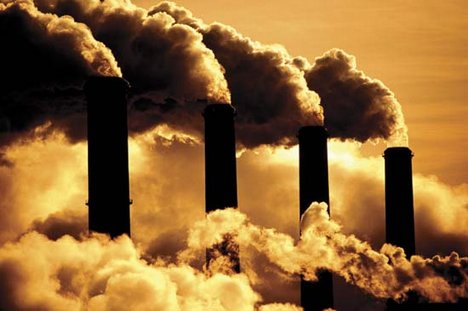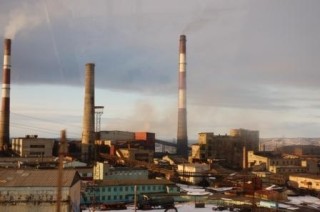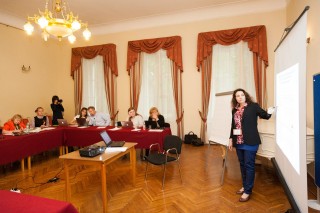
Bellona nuclear digest. May 2024
A survey of events in the field of nuclear and radiation safety relating to Russia and Ukraine.
News

Publish date: August 20, 2014
News
ST. PETERSBURG – Environmental activists from across Russia surrounding pollution in their respective regions and what needs to be done in order to normalize the environmental situation in Russia. They also discussed ways to improve legal mechanisms of environmental protection and improving the protection of citizens’ rights to a healthy environment.
Environmental activists gathered in the St. Petersburg suburb of Pushkin to discuss ways of forcing businesses to lower the amount of pollution they generate and decrease the associated risks for human health and negative impacts on the environment.
This year’s all-Russian conference entitled “The Ecology of Russia: Right to Life” started with a meeting on industrial pollution, which asserted at the outset that, “70 percent of air pollution comes from industrial enterprises.” The Environmental Rights Center (ERC) Bellona organizes the conference on annually.
The ‘Moonscapes’ of the Murmansk Region
Anna Kireeva, who represented Bellona’s Murmansk office at the conference, presented a report on industrial pollution in the Murmansk region. According to Kireeva, the activities of industrial giant Norilsk Nickel are creating an environmental disaster in the Russia’s Northwest. Specifically, she said, the Kola Mining and Metallurgy Company (KMMC) – which runs industrial enterprises out of the Kola Peninsula towns of Nikel, Pechenga, and Monchegorsk –is poisoning the region with sulfur dioxide.

“In the Murmansk region, scorched hills – referred to as ‘lunar landscapes’ by locals – are characteristic visual displays of sulfur dioxide’s harmful effects,” Kireeva told those gathered.
For years, environmental activists have tried to force the KMMC to comply with environmental protection regulations and install equipment at their facilities that adhere to modern safety standards. “We demand that this company, which is one of the wealthiest in the world, clean up its act and decrease its sulfur dioxide emissions,” Kireyeva said.
However, environmental protectionists lack leverage over the KMMC, as it is one of the largest taxpaying entities in the Murmansk region and, according to Kireeva, “feels that it is lord of the land.” The company typically reacts to its environmental critics by saying it will haul its operations to a different tax region, which would cost the industrial towns thousands of jobs, and a prospect that makes bring real influence to bear difficult.
Kireyeva is convinced the company’s environmental policies essentially act as camouflage; their environmental initiatives “boil down to the planting of moss, lichen and grass.” Yet, if those actions are not accompanied by a decrease in emissions, then they are useless, Kireeva says.
Far East Russian industrial pollution
Vladivostok’s Anton Tugushyov, last year’s laureate of Bellona’s annual Eco-Jurist (in Russian) prize, reported on industrial pollution problems in the Far East Russian Primorye region.
He said that despite the regions rich diversity of rare and protected species, authorities pay little attention to environmental problems, and ecological defense has become a hot issue.
He reeled off several industrial scale projects threatening the Primorye regions environment, chief among them the construction of a radioactive waste and spent nuclear fuel storage facility in the city of Fokino. The prospect of the waste project has galvanized the protests of local environmentalists, and signatures are being collected to petition to stop the construction.
Another ecologically problematic issue is the Zveda nuclear naval base at Bolshoy Kamen, where nuclear submarines are decommissioned and dismantled. Pollutants from Zveda threaten to poison sea waters and are threatening local populations of fiddler crabs.
But Tugushyov said the biggest environmental problem facing his region is the coal loading and handling that takes place in Vladivostok Harbor. He said its volume is only increasing, creating coal dust that poses a danger to the region’s entire population. Tugushyov and Vladivostok residents have appealed to the local Department of Nature Use, and complained to local prosecutors and regional parliamentarians with the demand for legislation that would forbid open loading and handling of coal in the harbor. But no changes for the better have been, or are, on the way, Tugushyov told the conference.
Success Hinges on Fully Developed legislation and regulations
Conference participants repeatedly stated that the underdeveloped nature of environmental regulations in combatting industrial pollution is one of the main causes for its spiking levels.
Yelena Vasiliyeva, Director of Volgograd Ecopress, told participants about the most pressing problems in environmental regulations aimed at industrial emissions.
First and foremost, Vasiliyeva said that current laws almost completely lack any division between the authority of monitoring and oversight agencies. “Some of these powers are handed out at the behest of local political and business interests,” said Vasiliyeva.
She also opined that regulations governing methods for environmental impact assessments are severely underdeveloped. “The municipalities administer environmental impact assessments, and a lot depends on which document they approve,” Vasiliyeva stated.
Industrial safety assessments are not without their own faults, from Vasiliyeva’s point of view, because the law does not require an environmental impact assessment or any public hearings if a building project for a potentially dangerous site does not include major construction work.
The system for authorizing such projects must also be improved upon, according to Vasiliyeva. “One little item has been removed from Rosprirodnadzor’s [the Russia’s Federal Agency for the Oversight of Natural Resource Usage’s] regulations, which said that the decision to issue a permit for allowable discharges could be based on the inaccuracy of the submitted information,” said Vailiyeva. “As a result, companies have started ‘cleaning up’ the information they provide on the volume and toxicity levels of waste they produce – they have been able to do so without consequence, and cases of canceled permits are rare.
Vasiliyeva also pointed out that companies are often unable to formulate systematic environmental protection policies because of a lack of the necessary legal mechanisms, such as environmental insurance and environmental audits.
Moderator Larisa Bronder, Bellona’s expert on industrial pollution, comments

This conference marks the first time that a working session devoted to industrial pollution was held at the national level, and Bronder led the session. During the course of a conference survey, participants expressed the importance of the problem of industrial pollution and the necessity of devoting more attention to it.
More than 50 percent of respondents stated that industrial pollution is a severe problem in their region of Russia.
In addition, all of the participants pointed at the disengagement of authorities from the issue and their ineffective policies aimed at decreasing the anthropogenic impacts of heavy industry.
At the same time, regional populations do not express any particular concern about industrial emissions or the dumping of industrial waste, regardless of the serious nature of the problem. The main reason for this disparity is the lack of available information on pollution and difficulties in obtaining objective date about it.
Taking the developing situation into account, Bellona calls on civil society to work more actively toward solving problems of industrial pollution. Specifically, Bellona proposed founding a working group formed of representatives from regions where industrial emissions pose a serious threat to the environment and human health.

A survey of events in the field of nuclear and radiation safety relating to Russia and Ukraine.

But it’s unlikely to impact emissions from shipping along the Northern Sea Route.

In this news digest, we monitor events that impact the environment in the Russian Arctic. Our focus lies in identifying the factors that contribute to pollution and climate change.

The following op-ed, written by Bellona’s Charles Digges, originally appeared in The Moscow Times. In recent months, the Russian nuclear in...